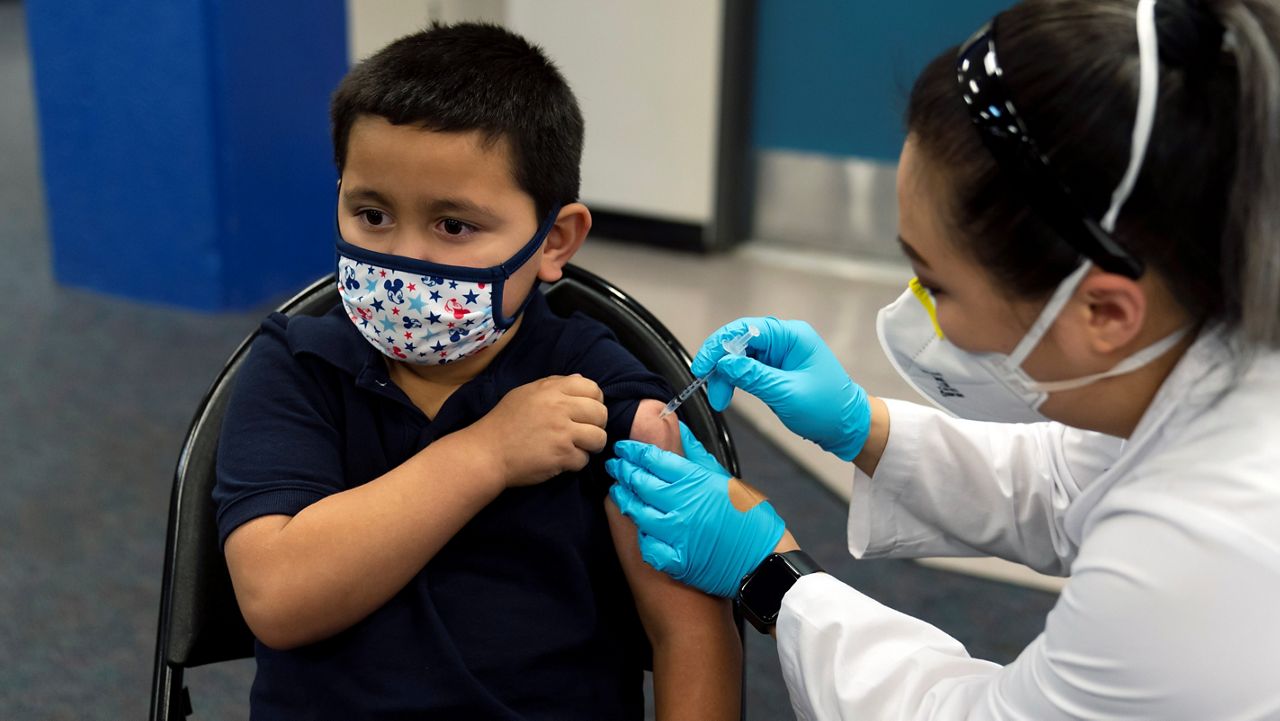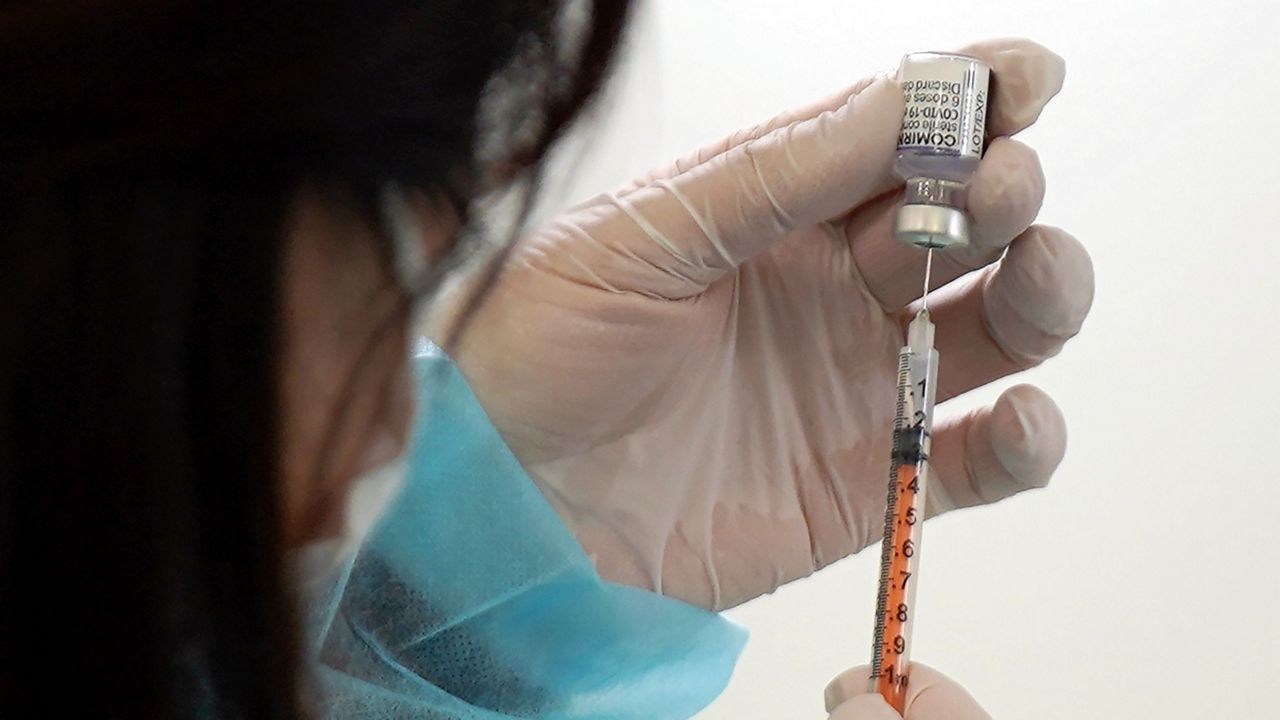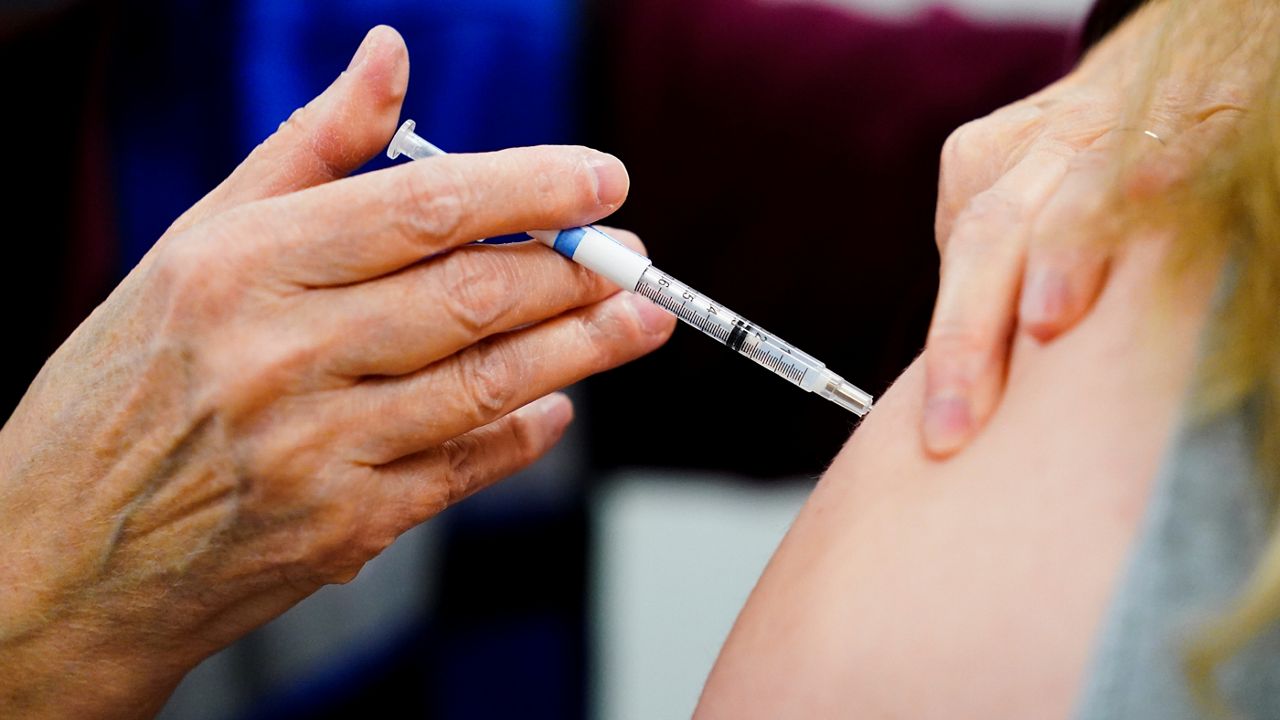Gov. Roy Cooper and N.C. Secretary of Health and Human Services Dr. Mandy Cohen happily announced that the state's COVID-19 metrics are trending down, but also cautioned that vigilance is a must because many are still sick.
"We’re relieved to see fewer people requiring hospital care and ICU beds for COVID-19. Our percentage of tests positive continues to decline and the number of people vaccinated increases every day, even though we want it to go faster," Cooper said at a news conference Wednesday afternoon, alongside the state's Coronavirus Task Force.
Cohen shared the latest data on North Carolina cases and an analysis of the numbers going back over the past several months. She said new cases, the percentage of positives found during testing, along with hospitalizations are all going down after a spike started in the summer due to the delta variant.
"N.C.’s fight is not over. We’re making great progress. We need to work to continue the downward trend. Hospitalizations and deaths are still too high," Cooper said.
Data trends down
Wednesday's N.C. DHHS metrics show 1,472,655 total cases since the start of the pandemic; 17,935 deaths total; while currently there are 1,406 people hospitalized and 2,160 new cases reported.
"This is great progress," Cohen said of the downward trend.
She showed graphics illustrating a drop in the numbers, but cautioned people not to let their guards down. She stated masks should still be worn indoors and schools should continue to have mask rules for students and staff.
Cooper and Cohen marked the progress made that is reflected in down sloping graphics, but both continued to urge people who are not vaccinated to get their shots.
"You, the people of North Carolina who have gotten vaccinated and followed community safety guidelines deserve a lion’s share of the credit along with our health care providers," Cooper said.
Cohen said that teenagers and young adults remain the largest unvaccinated population in the state. She said overall, 64% of the public age 12 and up have been vaccinated, but said only 42% of those 12-17 have taken the shot and 46% of people ages 18-24 have had it.
Who should get a booster?
Questions about boosters have swirled for months, and Cohen outlined just who among the population should get in line to get their extra dose.
She said those eligible for the booster include:
- People who received the J&J vaccine 2 months ago
- People who were fully vaccinated more than 6 months ago with Moderna or Pfizer and:
- Are 65 or older
- Are 18 years old and up with a medical condition
- Are 18 years and older working or living in a high-risk setting
Cohen reminded people that it is safe to mix and match vaccines, meaning people do not have to stick with the brand they initially received. She said those who are unsure if they should get a booster can take a quiz to help them get proper guidance.
Vaccines and kids
Vaccinations for children should be becoming available soon.
"We expect the federal government will soon give the green light to vaccinate children ages 5 to 11 years old. North Carolina health officials have been preparing for this and working to ensure parents can easily get their children vaccinated and protected," Cooper said.
He said that the state is currently working to ensure that vaccines for children will be easily assessable and readily available in pediatrician's offices and more.








